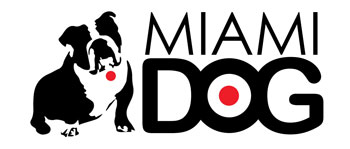
How much food you feed your dog is a more important question than you may think. When incorrect, the caloric and nutritional makeup of your dog’s food and treats can have an adverse effect on his standard of living and overall length of life. Discuss the topic with your trusted veterinarian in an open and honest dialogue. Together you can come up with a plan that will allow you to help your dog remain healthy.
How do I know how much to feed my dog?
When looking at the amount of food per day a dog should have, your vet will look at a number of different data points:
- Age
- Activity level
- Breed
- Size
- Weight
- Health conditions or disease
- Living environment
In 2021 the AAHA updated its Nutrition and Weight Management Guidelines for Dogs and Cats. It includes nutritional assessment screening evaluations and energy requirements versus caloric intake calculations your vet can use to keep your pet within a healthy weight.
Should I free-feed my dog?
Free-feeding — making food available to a dog all day without limiting quantity — can have a number of negative side effects.
- Over eating, causing a pet to become overweight
- Food protecting/aggression in multiple pet households
- Limits use of reward-based training
- Makes it difficult to identify a lack of appetite, which is often a sign your dog is ill
Tufts Cummings School of Veterinary Medicine notes that today’s pet food industry has done extensive taste tests and research to make dog food as appealing as possible. With constant access to good tasting food there is a higher chance your dog will overeat.
How to measure food and count treats?
The AAHA Nutrition and Weight Management Guidelines suggest that treats should be no more than 10% of your dogs’ caloric intake. Treats can add up fast, especially when passed out multiple times a day. Dogster’s sister pubication, The Whole Dog Journal, places owners wanting to demonstrate their affection as a root cause to overfeeding, citing an increase in obesity with more than 50% of dogs in the US being overweight or obese.
You can measure out food by measuring cup or by scale, noting that amount isn’t as important as the number of calories. Reference the food packaging for calories and suggested feeding guidelines.
How much to feed from puppy to adult?
How much food your dog needs, how often he should eat, and what amount of protein is required changes throughout your dog’s life. During regular checkups with your dog’s vet, update her on your dog’s activity level and ask if your dog’s current age should change the amount of food he receives.
Hanna Zulueta, who is certified in nutrition from the Companion Animal Sciences Institute (CASI), helps her clients understand how much to feed their dogs and suggests owners understand what their dog’s ideal body condition should look like so you can adjust quantity of food as needed. (See the body condition scoring system here. Hanna’s observations have led her to the conclusion that most dogs are overfed and believes the one thing owners can do to help their dog, regardless of diet, is to feed the amount that keeps the dog lean and fit.
